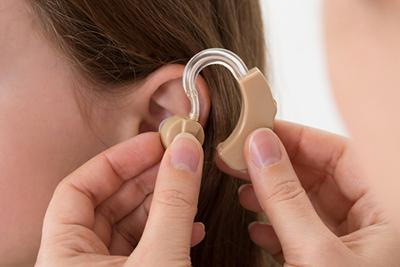What To Know About Hearing Aids
posted: Nov. 09, 2023.

Hearing aids are incredible devices designed to improve hearing for individuals experiencing varying degrees of hearing loss. They work by amplifying sounds, making them more audible. They consist of a microphone, an amplifier, and a receiver and are often customized to fit comfortably in or behind the ear.
They are needed when someone faces difficulty in hearing conversations, struggles with understanding speech, frequently asks others to repeat themselves, or experiences a persistent ringing in the ears (tinnitus). Hearing loss can occur due to aging, prolonged exposure to loud noises, genetic factors, infections, or medical conditions.
Anyone regardless of age, who encounters challenges in comprehending speech or sounds might benefit from hearing aids. It's crucial to consult an Ear, Nose, and Throat (ENT) specialist if experiencing persistent hearing difficulties. An ENT doctor or an otolaryngologist can evaluate the extent of hearing loss and its causes and recommend appropriate solutions. They may conduct various tests to determine the type and severity of hearing loss, guiding individuals toward the most suitable treatment options, which include hearing aids.
What To Know About Hearing Aids
Hearing aids are innovative devices designed to assist individuals experiencing hearing loss. Recognizing signs indicating a need for hearing aids is crucial. Common symptoms include difficulty following conversations, asking for repetitions, or feeling like others are mumbling. Struggling to hear in noisy environments, increased TV or radio volume, and withdrawing from social situations due to communication challenges can also signal potential hearing loss.
Consider seeking a professional evaluation if you experience these symptoms. An audiologist can determine the type and extent of hearing loss. They may recommend hearing aids if the loss significantly impacts daily life. These devices come in various types and styles, offering different features to suit individual needs.
Knowing when to consider hearing aids involves assessing the impact of hearing loss on personal and professional aspects of life. If communication difficulties hinder relationships, work performance, or overall quality of life, it might be time to consider hearing aids. Early intervention often yields better results, as it can prevent further deterioration and help adjust more seamlessly to using hearing aids.
Your Initial Consultation For Hearing Aids
During a hearing aid consultation, expect a discussion about your hearing concerns, medical history, and lifestyle. The audiologist will conduct hearing tests to assess your hearing levels and discuss the results with you. They'll explain various hearing aid options suitable for your needs, discussing features, costs, and maintenance. You can try different devices and discuss their fit. Finally, they'll address any questions or concerns, guiding the next steps toward improved hearing.
Please explore our website to learn about the conditions we treat and the services provided. Take charge of your hearing health today: if you find yourself frequently asking others to repeat themselves or struggling to hear conversations, it might be time to schedule a hearing assessment and explore the benefits of hearing aids.
